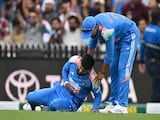Foreign policy should ideally be assertive, striking a balance between maintaining sovereignty and establishing influence within the global community. Renowned political scientist Joseph Nye's work on "Soft Power: The Means to Success in World Politics" articulates this concept effectively, suggesting that a nation's influence is not solely dictated by its military or economic might but also by its culture, political values, and foreign policies. Nye proposes that assertiveness in foreign policy does not equate to aggression; instead, it involves the tactful deployment of soft power alongside hard power in what he terms 'smart power'.
On a practical plane, India under Prime Minister Narendra Modi has demonstrated this assertive stance. India's foreign policy under his leadership has moved towards establishing the nation as a decisive player in global politics. This is evident in India's assertive stance in the Indo-Pacific, its more proactive role in multilateral institutions, and its diplomatic efforts to influence global norms on issues such as climate change and counter-terrorism.
India's international standing is reaching unprecedented heights, establishing it as a steadfast and confident player in the new global order. The country's foreign policy has amplified its validity as a contender for a seat at the United Nations Security Council, while simultaneously fortifying its role as the voice of the global south. In this column we will point out 9 ways in which Indian Foreign policy has evolved in the last 9 years.
1. Pragmatism: The turn of the 21st century marked a distinct change in India's foreign policy approach. Once a nation adhering strictly to the principles of the Non-Aligned Movement and maintaining distance from major power blocs, India has evolved to take a more pragmatic stance, putting its economic and security interests at the forefront. India has asserted its independent stance in global politics, refusing to be swayed by external pressure.
This is evident in its position on the Ukraine conflict, on China's Belt and Road Initiative, and its membership in the Quad. This shift is evident in India's decision to continue importing crude oil from Russia despite Western pressure to curtail these imports due to Russia's military aggression in Ukraine. In addition, India's decision to import Russian oil also reflects strategic pragmatism. For decades, Russia has been India's most significant supplier of defense hardware. By continuing to engage with Russia, India maintains this critical defense partnership, even as it carefully balances its ties with Western nations.
Moreover, India's position as a non-permanent member of the UN Security Council and its aspirations for a permanent seat make it necessary for India to navigate its relationships with both Western countries and Russia with care. India's decision to import crude oil from Russia is indicative of this nuanced diplomatic balancing act.
2. Transcending Domestic Concerns: Under the governance of the United Progressive Alliance (UPA), India's strategic external interests were unfortunately compromised by the pull of domestic politics. Prime Minister Manmohan Singh's decision to boycott the Commonwealth Summit in Sri Lanka, for example, was not the product of a calculated strategy to position India as a regional powerhouse in South Asia. Instead, it was a capitulation to the demands of Tamil parties, whose alliance could prove advantageous for the governing Congress party in the 2014 general elections. Foreign Minister Salman Khurshid's account confirms this, underlining how India's global standing was frequently held hostage by domestic political compulsions. As a result, crucial international relations were disrupted, as seen with New Delhi's relationship with Sri Lanka, a situation that sadly benefitted distant nations like China. The UPA government's approach illustrated a clear breach in harmonizing national interests with global strategy, thus shackling India's global ambitions. This has completely changed in the last nine years. Domestic political issues no longer result in the undermining of our critical national strategic interests.
3. Voice of the Global South: India has emerged as a key advocate for the Global South, articulating the concerns and aspirations of developing nations on the international stage. This position has been built on the foundation of India's robust economy, its commitment to democratic values, and its diplomatic efforts to build strategic alliances. India's leadership in forums like BRICS and G20, along with its active engagement in UN discussions on climate change, development, and peacekeeping, reflect this role. India's policy of "South-South cooperation" further underscores its commitment to sharing developmental solutions with fellow Southern economies.
4. Development Partnerships: India has established itself as a credible development partner, particularly in the Global South, delivering tangible outcomes on the ground. India's initiatives include establishing IT centers, delivering ferries, supplying trains, reviving factories, and creating mass transportation solutions.
Collaboration in technology, both government-to-government and business-to-business, has led to a drive for technology upgrades, opening up opportunities, especially for the youth. There's also increased cultural respect for India globally due to initiatives like the International Day of Yoga, the global popularity of Ayurveda, and other aspects of Indian culture. This respect has made it easier for Indians abroad to be understood and accepted.
5. Economic Collaboration: India is recognised as a collaborator in the global economy. This is reflected in increased Foreign Direct Investment, rising exports, and collaboration in high-tech industries like semiconductors.
6. Contributor to Global Issues: India has established itself as a key contributor to global issues like health, climate change, and disaster management. The Vaccine Maitri initiative and the country's leadership in the International Solar Alliance and the Coalition for Disaster Resilient Infrastructure illustrate this. Also, India's entry into global institutions like the Quad, Shanghai Corporation Organization, and export control regimes, reflects its increasing value-addition to global forums.
7. Shaping The Narrative: India is shaping global narratives on issues like climate change, counter-terrorism, and global strategic concepts like the Indo-Pacific and the Quad. India has succeeded in creating its platforms, organizing discourses, and shaping narratives. Rather than merely participating in global conversations organised by others, India is actively curating its dialogues.
8. Protection of Indian Nationals Abroad: India has shown commitment to protecting its citizens abroad, especially during crises. The country has undertaken numerous operations to ensure the safety and return of its nationals stranded overseas due to conflicts or the COVID-19 pandemic.
9. Greater Opportunities: Indian diplomacy has been successful in establishing mobility agreements with several countries, which has increased opportunities for Indian workers and professionals abroad. Improvements in welfare systems, especially for Indian workers in the Gulf, are a result of successful diplomatic negotiations. The expansion of Passport Seva Kendras throughout the country and abroad has made passport services more accessible, enabling more Indians to travel abroad.
In an unprecedented pivot, India is revolutionizing its approach toward regional and foreign trade agreements. This transformation is marked by a slew of Free Trade Agreements (FTAs) with countries like the UAE, Australia, EU, and the United Kingdom. This shift is a testament to India's strategic foresight and its eagerness to embrace the dynamism of global commerce. No longer does India view trade merely as a transactional exchange; instead, it's adopting a more holistic perspective where these agreements serve as a conduit for fostering stronger diplomatic ties, securing strategic interests, and invigorating economic growth.
India's transformation into a more assertive player on the international stage signifies a shift from a non-aligned, reactive approach to a proactive and strategic one. By leveraging its economic prowess, geostrategic position, and diplomatic acumen, India is shaping its relations with other nations based on its core interests and values. This robust approach manifests in the strong handling of border disputes, the increasing influence in international bodies, and fostering of strategic alliances. This pragmatic yet assertive foreign policy approach holds promise for a brighter future for India, establishing it as a dominant force in the complex chessboard of global politics.
Bibek Debroy is the Chairman, Economic Advisory Council to the Prime Minister (EAC-PM) & Aditya Sinha is Additional Private Secretary (Policy & Research), EAC-PM.
Disclaimer: These are the personal opinions of the author.















